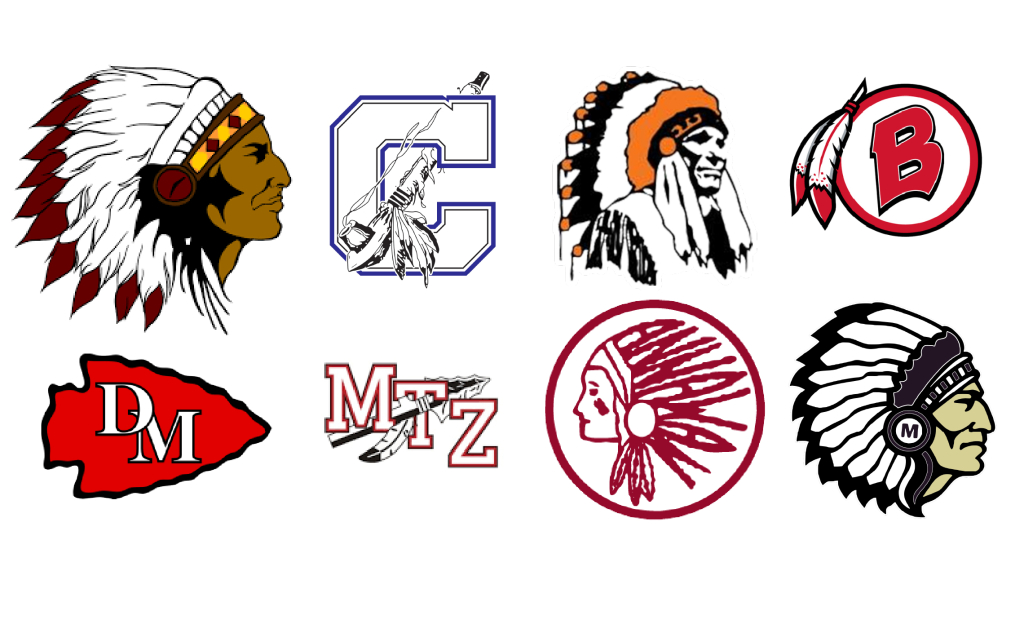
By BRIDGETTE FOX
Capitol News Illinois
[email protected]
SPRINGFIELD – Illinois’ legislative session concluded without passage of a Native American K-12 school mascot ban, but another issue sought by Natives will make its way to the governor.
Despite desire from Native Americans in Illinois, the ban on Native imagery for mascots in K-12 schools stalled in the Senate after it made its way out of the House.
House Bill 1237’s Senate sponsor, Sen. Suzy Glowiak Hilton, D-Western Springs, said after the bill missed a deadline earlier this session, she was still gathering a consensus from other legislators. But she said many of the concerns she heard about the measure stemmed from the costs associated with schools changing mascots.
“We will continue conversations about it and see what we can do with helping them pass it,” Glowiak Hilton said when the bill missed its mid-May deadline.
GLOWIAK HILTON PHOTO
Native American advocates told Capitol News Illinois earlier this year about the importance of improving Native imagery.
“Our identity has been frozen in time, and it’s going to stay frozen in time as long as we’re portrayed as mascots and things of the past,” said Matt Beaudet, a citizen of the Montauk Tribe of Indians who was in Springfield to advocate for the bill’s passage.
Andrew Johnson, a citizen of the Cherokee Nation and executive director of the Native American Chamber of Commerce of Illinois, said how natives are often portrayed as mascots in school logos has a detrimental effect of “costuming.”
“It really is not a sense of honor there,” he said. “It is not a sense of history. In fact, it’s a perversion of history to think that these mascots are maintaining any kind of that memory of Native people.”
Ho-Chunk Nation conserving land in Illinois
A separate bill related to Native interests did make it through both Houses and awaits the governor’s signature.
House Bill 1605, originally sponsored by Rep. Maurice West, D-Rockford, would amend existing law so tribal nations can join land conservation agreements with land owners.
As land conservators, a tribal nation could maintain the land and have control over what happens to it. Originally, only nonprofits, the state or federal agencies could join land conservation agreements with landowners.
The Jo Daviess Conservation Foundation, a nonprofit in Jo Daviess county, brought the idea of land conservation forward to the Ho-Chunk Nation, which is located inside Wisconsin. The Ho-Chunk Nation was not available for comment.
The foundation owns land in the county that holds a cultural site significant to the Ho-Chunk Nation. The nonprofit owns and maintains multiple sites that are important to different tribal nations.
The foundation’s executive director, Steve Barg, along with a former employee, said they were originally interested in giving the land to the Ho-Chunk, but they said the nation found the idea impractical.
“They’re not going to get in a car every week and drive down 4 hours … to care for these places,” Barg said. “That’s just not feasible for them.”
There were also reportedly concerns that Illinoisans would not be receptive to the nation owning land there akin to some worries people had about the Prairie Band Potawatomi Nation. The Ho-Chunk, like the Prairie Band Potawatomi, own casinos. However, neither nation has expressed any desire to open a casino in Illinois.
A conservation agreement offered a clearer path of collaboration, but the groups needed a law change to specifically allow tribal nations to execute one.
Barg said the Ho-Chunk and the Jo Daviess Conservation Foundation have been working together for 12 years.
The groups apparently wanted to go forward with a land conservation easement because, if the foundation didn’t exist one day, any provisions agreed to under the agreement would still have to be honored. It differentiates the agreement from a private contract they could have entered instead.
“We want to make sure that the purposes of protecting this land for conservation outlasts our own organization,” Barg said. “If our own organization were ever to merge with an organization or cease to exist, those conservation easements held on our land by other entities would still protect the mission under which we saw that these lands were preserved.”
Capitol News Illinois is a nonprofit, nonpartisan news service that distributes state government coverage to hundreds of news outlets statewide. It is funded primarily by the Illinois Press Foundation and the Robert R. McCormick Foundation. Our initial reporting on Native American issues at the Capitol was part of the Healing Illinois 2025 Reporting Project, “Healing Through Narrative Change: Untold Stories,” made possible by a grant from Healing Illinois, an initiative of the Illinois Department of Human Services and the Field Foundation of Illinois that seeks to advance racial healing through storytelling and community collaborations.






